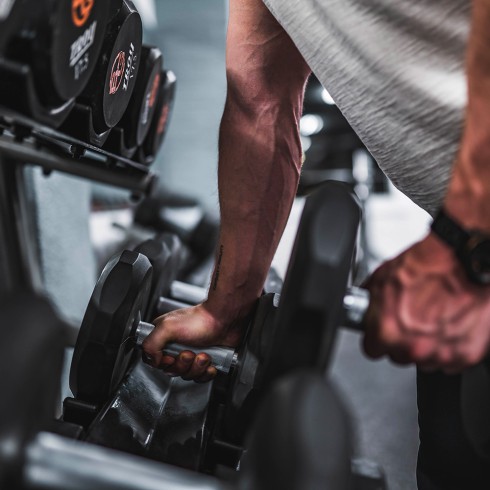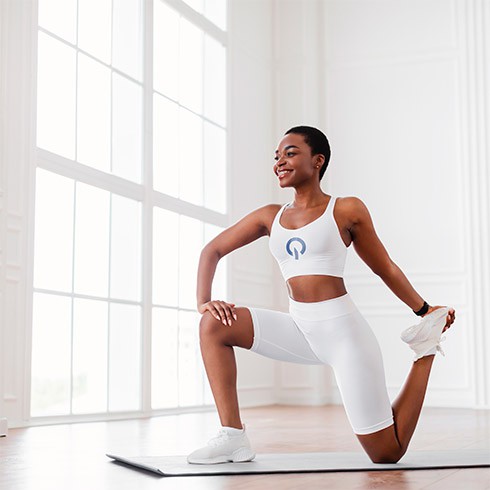Guide for beginner.
Of course, we see this with our enlightened amateur eyes, but take a few seconds to put yourself back at the level you were when you started training: The thirst for learning, the energy, the endless workouts because we thought more is better...
However, what is certain is that being a beginner makes you the person who can evolve the most. If there are certain rules for training a confirmed athlete, they are most of the time to be reconsidered when it comes to a beginner.
Let's look together at what is specific for a beginner.
BEGINNER: BASIC PRINCIPLES.
The status of being a beginner is unique. The body and muscles are devoid of any specific training. Therefore, the first workouts should not be exaggerated to avoid being discouraged by muscle soreness.
It's also important to allow time for proper learning: to execute exercises correctly and to be corrected by a qualified person.
Also, know what you're doing and why you're doing it. Don't try every workout you see on the internet just because someone tells you it's a miracle workout.
Don't hesitate to seek advice from a professional to avoid starting off on the wrong foot.
Listen to people around you, but do your research on those who like to give advice before following them.
A beginner will progress no matter what they do! Because doing a little bit poorly is always better than doing nothing but well.
Being a beginner is a unique status that allows the person starting out to progress much more than a confirmed amateur with several years of training behind them. If you stop training for a few years, you will also have the pleasure of rediscovering this beginner's progress when you resume. Indeed, the muscle has a memory and often remembers the performances acquired in the past. So when you resume after a break, you regain your performance faster than during your initial sessions. Count one-third of the downtime to recover your full potential.
BEGINNER'S TRAINING.
The first workouts should always be too easy. It's better to feel nothing the next day because we didn't do enough; we can always do more afterward than to be unable to move because we tried to follow a more advanced athlete. In that case, it's possible that all training may be prohibited for several days. Gradually increasing difficulty is possible; going back because we've overdone it is not.
However, doing a general workout to learn the exercises correctly and progressively is smarter.
First workout:
- 4 sets of light crunches, such as crossed knees, hands behind ears, touching opposite knee with elbow
- 2 sets of 20 reps leg extensions for thighs
- 2 sets of 20 reps lunges for thighs, buttocks
- 2 sets of 20 reps leg curls for hamstrings
- 2 sets of 20 reps bench press for chest
- 2 sets of 20 reps neck chins for back
- 2 sets of 20 reps barbell curls for biceps
- 2 sets of 20 reps pushdowns for triceps
- 2 sets of 20 reps lateral raises for shoulders
- Finish with 10 minutes of cardio and 10 minutes of stretching.
No need to go to failure. It's a first session!
If everything goes well and the beginner doesn't feel sore the next day, they can move on to 3 sets and eventually increase their weights. However, if this small session already gives them significant soreness, there's no question of going further for the moment.
If you're a beginner, you don't know your level and surely can't evaluate it yourself. This program is a good way to self-assess. It's also a good way not to be discouraged and not to give up prematurely. Someone who succeeds in their progression will be more inclined to continue and therefore achieve more results, unlike someone who, after one session, is already failing to meet their expectations.
We will change the program as soon as the beginner has reached 4 sets in each exercise and no longer experiences muscle soreness the next day.
After that, we move on to a more traditional program, with 3 exercises of 4 sets and 12 to 15 repetitions. Each time we reach 15 repetitions, we increase the weight for the next set, and decrease it if we can't achieve 12 repetitions. Of course, we split the muscle work according to each person's goals.
If our beginner athlete wants to come 3 times a week, then a proper routine would be:
- 1st day: Chest and back
- 2nd day: Abs, thighs, hamstrings, calves
- 3rd day: Arms - Shoulders
For a 4-day week:
- 1st day: Chest and back
- 2nd day: Thighs and hamstrings
- 3rd day: Arms
- 4th day: Abs, shoulders
Exercising 5 times a week may seem a bit much for a beginner, but it varies from case to case. If the beginner plans only 3 days for their workout sessions, we will cover all muscle groups in 3 days.
It's always better to do a little for a long time than a lot and not last the distance.
So, before running, don't forget to learn to walk. Don't hesitate to ask lots of questions about training, about exercises. If someone tells you "because that's how it is!" it means they don't know and are repeating a pattern they themselves learned. This pattern may be good, but if someone can answer all your questions and give you a valid explanation, then that's where you should seek advice.
A beginner often needs a role model. They will find athletes at the gym whom they admire and listen to no matter what they say. Just because these athletes have results doesn't mean they can guide someone on the path of training. These athletes often only know their personal case, and they can pass it on. That doesn't mean it will work for you. As a beginner, also be careful not to rush into taking steroids. Most users pay a high price sooner or later. It's not good for health. Ask yourself if it's worth it. Yes, you can save years of work, but you can also cause irreparable injuries to tendons, muscles, and joints because these types of products mask most pains. Your body is not warned of the danger and continues to work and damage itself. Pain is not a bad thing; it's just a warning your body gives you to avoid continuing a movement and creating dangerous lesions for the body. Taking steroids can also cause liver damage, heart problems, sexual issues, hair loss...
So, yes, it gives results but for being "physically good" for less time than someone natural? Again, we are not equal when it comes to these types of products. Like any medication, there are primary and secondary effects. Some will develop more primary effects than secondary ones, for others, it will be the opposite. And no one knows in advance. If at least taking these products could open professional doors for you and allow you to really earn a good living, but can we really consider this scenario with certainty? Low-cost gyms often easily expose beginners to the problem of steroids. "Appearance" has become very important on social networks. Let's not forget that sports serve to have better physical and mental health. Before thinking about "ease," think about work and learning. Even if you take steroids, without work, it doesn't work either. So, first learn to work, then learn to work well, and don't do anything just to please others; you must please yourself and you must surpass yourself, not others!
And there you have it! Our beginner is off to the gym without being discouraged. However, I've noticed that most beginners who started this way tend to increase the weights and sets to do "like the old-timers." If it doesn't cause too much pain, why not.
BEGINNER'S NUTRITION.
Generally, a beginner is not ready to change their food directly; they need time to find motivation. When 25 people have told them that nutrition is important, they will surely start to believe it. There is no difference between nutrition for a beginner or an accomplished athlete. The principles remain the same. However, the beginner will be more sensitive to good muscle mass gain than a seasoned practitioner.
It's not uncommon to see beginners gain more than 7 or 8 kilos in the first year, sometimes even more. So, if you're starting out, don't hesitate to knock on the door of a professional coach; you'll optimize your muscle mass gain.
Basic Rules:
- You need protein at every meal.
- You should eat every 3 hours.
- You need slow carbohydrates at every meal as well as fiber.
- You should eat balanced meals.
- You should drink 2 to 3 liters of water per day.
COACH'S ADVICE.

- Embarking on weightlifting like those who already have years of practice behind them. This type of behavior can cause extremely painful and debilitating soreness for several consecutive days.
- Eating anything and everything. Often, you might hear that you need to eat a lot to do bodybuilding. But excess is also the enemy of good. Eating well is important. If you want to eat a lot, you should first know your body type.
Related posts
-
 Gaining Muscle Guide.
31/01/2024Muscle building can only be achieved by respecting certain principles: adapt your diet and adapt your training! We...Read more
Gaining Muscle Guide.
31/01/2024Muscle building can only be achieved by respecting certain principles: adapt your diet and adapt your training! We...Read more -
 Nutritional Programme Guide.
15/02/2024There's nothing easier than losing weight. The only difficult thing is making the decision. If you have a lot of...Read more
Nutritional Programme Guide.
15/02/2024There's nothing easier than losing weight. The only difficult thing is making the decision. If you have a lot of...Read more -
 Weight Loss Guide.
10/01/2024Everyone would like to be lean and muscular. But nobody likes to diet. Yet every year dozens of magazines offer us...Read more
Weight Loss Guide.
10/01/2024Everyone would like to be lean and muscular. But nobody likes to diet. Yet every year dozens of magazines offer us...Read more -
 Improve Performance Guide.
20/02/2024You are on the verge of breaking through to a new level in your sports performance. The key to achieving this lies in...Read more
Improve Performance Guide.
20/02/2024You are on the verge of breaking through to a new level in your sports performance. The key to achieving this lies in...Read more -
 Wellness Guide.
01/01/2024Wellness is a dynamic balance between the body and the mind, requiring constant maintenance. It's not about the...Read more
Wellness Guide.
01/01/2024Wellness is a dynamic balance between the body and the mind, requiring constant maintenance. It's not about the...Read more
Blog categories
Popular posts
-
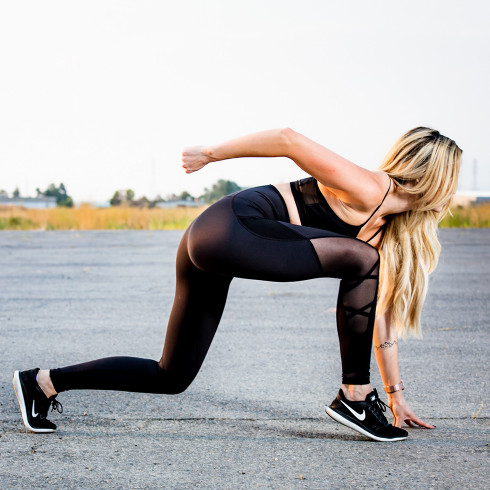 Looking thinner but at a heavier weight? Is that possible?04/10/2021Posted in: Our tipsAdvertising has shaped our thinking! We have been forced for years to believe that losing weight is the key to having...Read more
Looking thinner but at a heavier weight? Is that possible?04/10/2021Posted in: Our tipsAdvertising has shaped our thinking! We have been forced for years to believe that losing weight is the key to having...Read more -
 Proteins for weight loss !29/12/2023Posted in: Our tipsDive into the fascinating world of proteins and their key role in weight loss. Discover how to choose the best...Read more
Proteins for weight loss !29/12/2023Posted in: Our tipsDive into the fascinating world of proteins and their key role in weight loss. Discover how to choose the best...Read more -
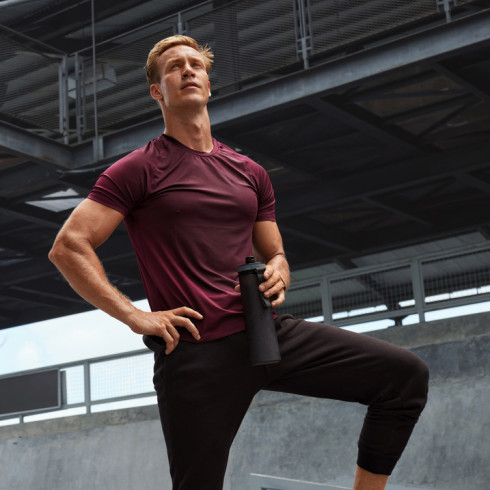 Which foods boost testosterone levels ?07/05/2021Posted in: Food supplementsTestosterone, often associated with virility, has much more to offer than you might think. It plays a crucial role in...Read more
Which foods boost testosterone levels ?07/05/2021Posted in: Food supplementsTestosterone, often associated with virility, has much more to offer than you might think. It plays a crucial role in...Read more -
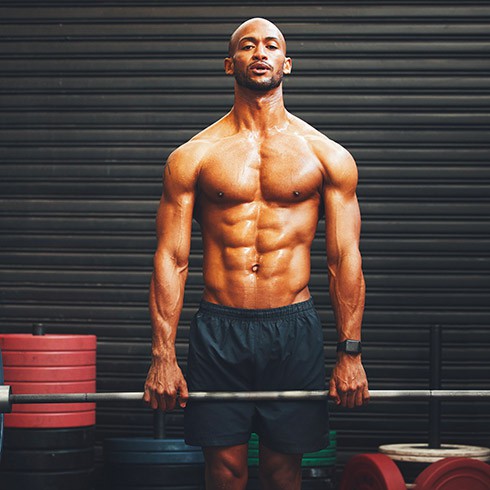 10 BENEFITS OF GLUTAMINE.02/01/2024Posted in: Our tipsDiscover the power of L-glutamine, an underrated superhero in the world of amino acids! Essential for revitalizing...Read more
10 BENEFITS OF GLUTAMINE.02/01/2024Posted in: Our tipsDiscover the power of L-glutamine, an underrated superhero in the world of amino acids! Essential for revitalizing...Read more -
 Is there a link between sex and sport?14/11/2019Posted in: LifestyleMany have already asked questions about sex and sport. Most of the time, people want to be reassured by the many...Read more
Is there a link between sex and sport?14/11/2019Posted in: LifestyleMany have already asked questions about sex and sport. Most of the time, people want to be reassured by the many...Read more

